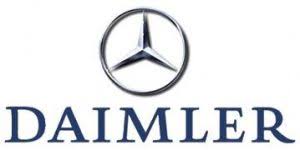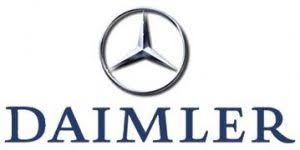
The German auto maker Daimler has identified China as the biggest growth market in the next decade for Mercedes-Benz, said the company’s Chief Executive, Ola Kaellenius.
But with continued rise in global trade tensions, the company also plans to adjust production locations to capture shifts in demand, Kaellenius said.
These comments from Daimler come a time when the global trade and business environment is engulfed in an increase in tensions between the United States, China and Europe. The company’s Mercedes brand had been growing for almost a decade that has propelled the brand to become the largest selling luxury car brand in the world.
“The situation has become much rougher, with a tendency toward rougher talks, right up to and including trade conflicts,” Kaellenius told the Frankfurt-based ICFW Journalists association late on Monday.
“We need to look at our production footprint and where it makes sense, shift our production,” he said during the video call meeting. Last year we sold around 700,000 passenger cars in China. The next biggest market is the U.S. with between 320,000 and 330,000 cars.”
Daimler and German rival BMW both pre-released forecast beating third quarter results primarily because of a strong rebound of their business and demand in China.
“In the next 10 years we also expect the biggest growth in China,” Kallenius added, explaining that the luxury carmaker will follow the market.
But the outlook for global sales remains uncertain because of increasing tensions in international trade.
The Swedish executive explained how things could go wrong by citing the example of the possibility of Britain’s Brexit negotiations ending without any tariff free trade agreement with the European Union.
“I am hoping for last-minute common sense,” Kallenius said in response to a question about his expectations on the outcome of Brexit talks.
Trade between Britain and the EU will have to be conducted under World Trade Organization (WTO) rules which would mean imposition of tariffs if Britain and the European Union fail to clinch a deal.
“In the event of a so-called hard Brexit, we would not open factories, because this would not be worth it, given our sales numbers,” Kaellenius said, referring to sales in Britain. “We would have to learn to live with WTO rules.”
He said that building cars at a profit is made increasingly harder because of the increasing fragmentation of the global markets because such a situation reduces economies of scale in production.
For example, only its top-of-the line S-Class model is manufactured by Mercedes-Benz in Germany. He said that since the company sell only about 100,000 of those vehicles globally, it makes little business sense to develop new production facilities in the United States and China for making the cars locally in the countries.
Irrespective of whether the Republicans or Democrats win the US election next month, it is most likely that the tensions between United States and the rest of the world would remain.
“What the two (presidential) candidates are saying is that they have an interest in improving the trade balance, and we need to be ready for that,” Kaellenius said.
(Source:www.deccanherald.com)
But with continued rise in global trade tensions, the company also plans to adjust production locations to capture shifts in demand, Kaellenius said.
These comments from Daimler come a time when the global trade and business environment is engulfed in an increase in tensions between the United States, China and Europe. The company’s Mercedes brand had been growing for almost a decade that has propelled the brand to become the largest selling luxury car brand in the world.
“The situation has become much rougher, with a tendency toward rougher talks, right up to and including trade conflicts,” Kaellenius told the Frankfurt-based ICFW Journalists association late on Monday.
“We need to look at our production footprint and where it makes sense, shift our production,” he said during the video call meeting. Last year we sold around 700,000 passenger cars in China. The next biggest market is the U.S. with between 320,000 and 330,000 cars.”
Daimler and German rival BMW both pre-released forecast beating third quarter results primarily because of a strong rebound of their business and demand in China.
“In the next 10 years we also expect the biggest growth in China,” Kallenius added, explaining that the luxury carmaker will follow the market.
But the outlook for global sales remains uncertain because of increasing tensions in international trade.
The Swedish executive explained how things could go wrong by citing the example of the possibility of Britain’s Brexit negotiations ending without any tariff free trade agreement with the European Union.
“I am hoping for last-minute common sense,” Kallenius said in response to a question about his expectations on the outcome of Brexit talks.
Trade between Britain and the EU will have to be conducted under World Trade Organization (WTO) rules which would mean imposition of tariffs if Britain and the European Union fail to clinch a deal.
“In the event of a so-called hard Brexit, we would not open factories, because this would not be worth it, given our sales numbers,” Kaellenius said, referring to sales in Britain. “We would have to learn to live with WTO rules.”
He said that building cars at a profit is made increasingly harder because of the increasing fragmentation of the global markets because such a situation reduces economies of scale in production.
For example, only its top-of-the line S-Class model is manufactured by Mercedes-Benz in Germany. He said that since the company sell only about 100,000 of those vehicles globally, it makes little business sense to develop new production facilities in the United States and China for making the cars locally in the countries.
Irrespective of whether the Republicans or Democrats win the US election next month, it is most likely that the tensions between United States and the rest of the world would remain.
“What the two (presidential) candidates are saying is that they have an interest in improving the trade balance, and we need to be ready for that,” Kaellenius said.
(Source:www.deccanherald.com)





